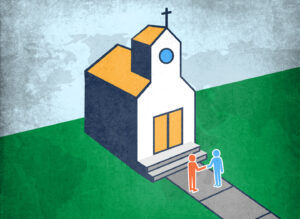Who are you in the parable of the Good Samaritan?
Socrates once said, “an unexamined life is not worth living for.” Our local church exists in a community context and commits us to love its neighbors. The classic question from the disciples to Jesus is, “Who is my neighbor?” Jesus answered with a parable of the good Samaritan and asked the disciples to define who is a good neighbor.
Jesus expounds that the least done to a neighbor, such us an offering of a glass of water, is tantamount to an act of kindness to Jesus. What this looks like in an international context, such as a Filipino family, when one enters a home, that person is expected to eat a meal even if it has not been planned or there was not an official invitation to have a meal. The host will ask, “Have you eaten your meal, or can I offer you something to drink or eat?” It takes the offer of the meal to create the experience of blessing and hospitality. The Good Samartian knew his neighbor needed care and blessing.
Where the Great Commission and Great Commandments Meet.
Evangelicals all agree that the Great Commission is the priority, whatever it takes. On that same note, the second greatest commandment should never be neglected. In a local church context, it’s high time to ask the questions, who are her neighbors? Why should a local church love her neighbors? This is at the core of Jesus’ teachings – the church exists to fulfill the Great Commission and the Greatest Commandments. The local church can fulfill both the Great Commission and the Great Commandments by following the example of the Good Samaritan.
How Well do You Know Your Neighbors?
Who are our neighbors in our church community? Each community is different in its make up, but full of diverse individuals in lifestyle, culture, and context. There are many demographic resources available to the public to gain knowledge and insight about your community. Loving our neighbors wisely is serving our community.
One of the needs of our neighbors who belong to the faith—our international/language church plants—is for the local church to embrace them as Jesus commanded. There are 165 languages from more than 100 people groups along the Front Range.
One study presented by the IMB states that 70% of international college students were never invited to a local church by an American family after four years in college and 80% of them were never invited by a local church before they returned to their country of origin.
The latest report from the U.S. Surgeon General states that loneliness is the number one problem in North America. Will you be a good neighbor in your community? Adopt an international church plant for Jesus’ sake.
Jerico Deveyra, Church Planting Catalyst • Send Network Colorado • Colorado Baptists
Do you know your neighbor?
We can provide a free Demographic Report to help you answer that question. Contact your Regional Director, or the CBGC Office, to receive your free Demographic Report.





